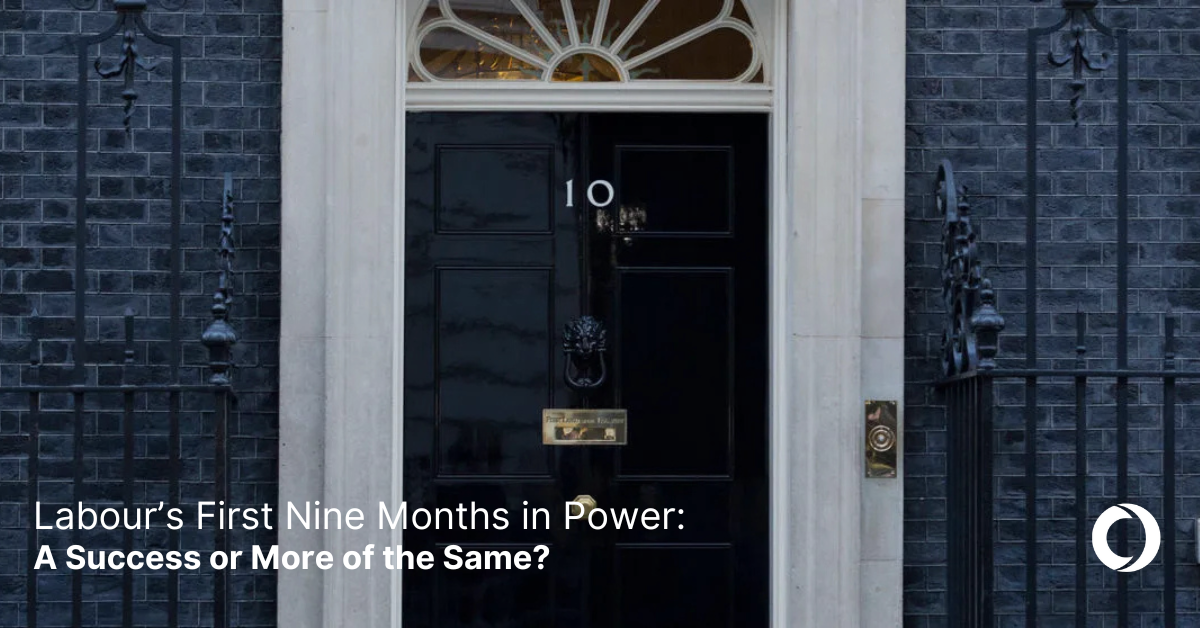Labour’s return to government in 2024 was marked by promises of economic stability, business-friendly policies, and a fairer society. Nine months in, has Keir Starmer’s government delivered? This article evaluates Labour’s impact on the business community, the broader economy, and its social policies—particularly in Northern Ireland, while also considering the wider implications for businesses in Great Britain. The final question: is Labour truly better than the previous Conservative administration?
Business Confidence and Economic Stability
The UK economy exhibited modest growth in late 2024. According to the Office for National Statistics (ONS), real GDP increased by 0.1% in the fourth quarter of 2024, following no growth in the previous quarter. Annually, GDP grew by 1.1% in 2024, revised up from an initial estimate of 0.9% (ONS).
In Northern Ireland, regional data indicates that while certain sectors like renewable energy and advanced manufacturing show promise, overall economic growth remains tepid, mirroring the broader UK trend. Business confidence remains fragile, particularly among SMEs reliant on cross-border trade and EU investment.
Tax, Regulation & The Business Environment
The Office for Budget Responsibility’s (OBR) March 2025 Economic and Fiscal Outlook highlights a significant rise in the tax-to-GDP ratio. Tax as a share of GDP is projected to increase from 35.3% to a historic high of 37.7% by 2027-28. This surge is largely attributed to the Autumn 2024 Budget’s increase in employer National Insurance Contributions, effective April 2025 (OBR).
For Northern Ireland businesses, these tax changes pose challenges, particularly for SMEs operating with tight margins. The anticipated rise in employer NICs may impact hiring decisions and investment plans, with small firms disproportionately affected. While Labour has resisted raising corporation tax beyond its current level, businesses feel the cumulative tax burden is increasing.
Labour Market, Skills, and Industrial Relations
The UK labour market continues to grapple with skills shortages. While the ONS reports a slight increase in services output by 0.1% in Q4 2024, industries such as manufacturing and engineering face persistent recruitment challenges (ONS). The government’s initiatives to reform apprenticeships and bolster vocational training have yet to yield substantial results.
In Northern Ireland, recruitment concerns remain particularly acute in sectors such as healthcare, logistics, and manufacturing. Labour’s immigration policies, which have not significantly diverged from the previous government’s, continue to restrict access to skilled foreign workers.
Welfare Reform & The Social Impact
Chancellor Rachel Reeves’ recent Spring Statement introduced welfare cuts aimed at reducing government spending. These measures have sparked concern among over 30 Labour MPs, who argue that the cuts could push more families into poverty (The Times).
For businesses, particularly in consumer-facing sectors, reduced household incomes may lead to decreased spending, affecting overall economic activity. In Northern Ireland, where a higher proportion of the population relies on welfare support, these cuts could exacerbate economic inequalities.
Labour vs. The Tories: Better, Worse, or Just Different?
Comparing Labour’s performance to the previous Conservative government reveals both continuity and change. While Labour has maintained certain fiscal policies, such as the corporation tax rate, the emphasis on increasing the tax-to-GDP ratio and implementing welfare cuts indicates a shift in priorities. However, overall economic growth remains modest, and many challenges persist.
Some businesses appreciate the stability and predictability of Labour’s fiscal approach, particularly after years of volatility under the Tories. Others argue that Labour’s regulatory and tax policies are creating a heavier burden for businesses without delivering corresponding benefits.
Conclusion — Stability is Not Transformation
Labour’s first nine months have brought stability to the UK’s economic landscape, with modest GDP growth and predictable fiscal policies. However, significant challenges remain, including tax burdens on businesses, skills shortages, and the social implications of welfare reforms. For Northern Ireland, the impact of these policies is particularly pronounced, given the region’s unique economic context.
As the government moves forward, businesses will be keenly observing whether Labour can transition from stabilising the economy to implementing transformative policies that address these ongoing issues. For now, while Labour may have avoided the chaos of its predecessors, it remains to be seen whether it can genuinely deliver better outcomes for businesses and the wider economy.


